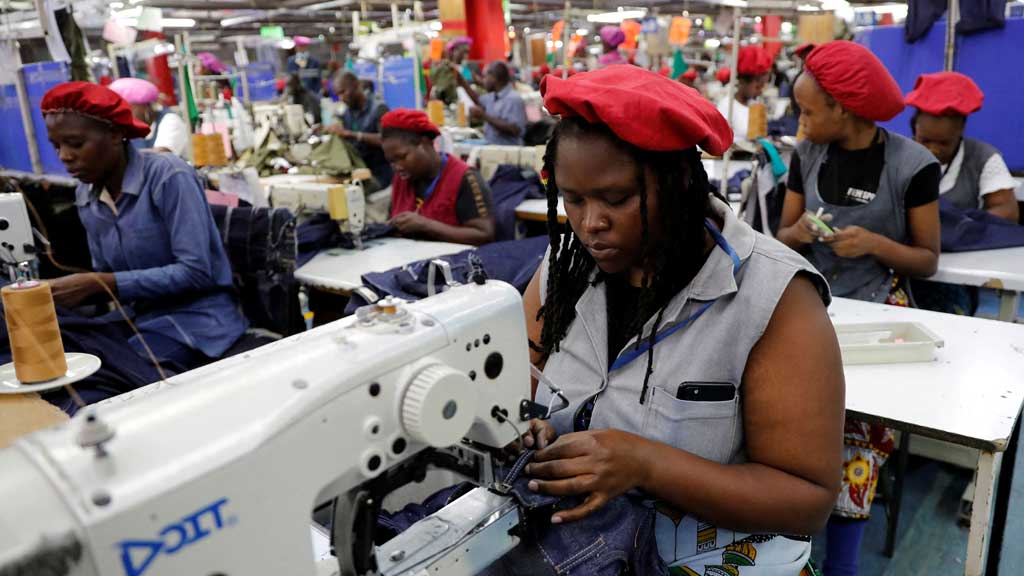
Trump tariffs threaten the US-Africa trade program
President Donald Trump has taken action to put broad tariffs on the majority of goods imported into the US, including those from African nations that profit from a U.S. trade initiative for the continent.
The increased tariffs, according to analysts, make it very unlikely that the African Growth and Opportunity Act (AGOA) would be renewed.
Key information regarding the trade agreement is as follows:
Describe AGOA.
Passed in 2000 under former President Bill Clinton, AGOA is a U.S. trade policy aimed at strengthening trade relations with Sub-Saharan Africa and assisting African nations in their economic development.
Motor cars and their parts, textiles and apparel, minerals and metals, agricultural products, and chemicals exported by qualified African nations are among the thousands of products that are granted duty-free access to the U.S. market.
It expires in September 2025, and it has been renewed twice.
WHO ADVANTAGES?
There are now about 35 African nations that qualify. Eligibility can be revoked and reclaimed by nations according to standards such as human rights protection and economic policies.
South Africa, Nigeria, Ghana, Kenya, Lesotho, Madagascar, and Ethiopia are among the nations that have effectively used AGOA to increase exports to the United States, promote industrialization, and generate employment, particularly in the textile, automotive, and mineral industries, including crude oil.
Advancing its interests on the continent favors the United States. Investment possibilities and vital minerals are also made available to it.
AGOA does not apply to nations that infringe on U.S. foreign policy or national security objectives.
It is considered a crucial soft power instrument by U.S. policymakers, especially as a means of thwarting Chinese influence.
A rapid increase in tariffs or the non-renewal of AGOA would disproportionately affect industries including the automobile sector in South Africa, the apparel sector in Kenya, and the apparel sector in Lesotho.
HOW DO CRITICS FEEL?
AGOA has been criticized by numerous analysts for being underutilized.
Most exports originate from a small number of qualified nations, and only about half have national AGOA use programs.
The program’s greatest successes have been in the automobile and textile industries, while other sectors have trailed behind.
By 2024, U.S. imports from AGOA recipients had dropped to $29.1 billion from their 2008 peak of $82 billion, according to the AGOA website.
Though it has to be revised and enhanced to incorporate modern industries like technology and digital services, some observers claim that AGOA has had a good influence.
NOW WHAT HAPPENS?
Although African nations want a 10-year extension, analysts predict that AGOA won’t likely be renewed due to the Trump administration’s protectionist trade views.
According to commentators, the new tariffs have increased the likelihood that AGOA would be completely abandoned before it expires unless the area has significant negotiating leverage to keep it in place.
Government representatives from Madagascar and South Africa stated that they were awaiting clarification on whether the reciprocal duties that Trump had declared would be imposed on products shipped under AGOA.
The U.S. President must sign AGOA into law after the U.S. Congress has approved its extension.
All Categories
Recent Posts
Tags
+13162306000
zoneyetu@yahoo.com



